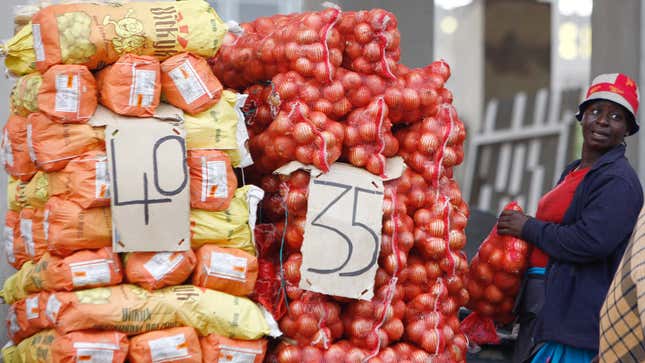“You’re a girl, you’re young.” Those words have followed Boitshoko Masetla at every turn on her journey as an entrepreneur.
At first it was her family, especially her male relatives, who believed she would be better suited to training for a stable and nonthreatening desk job. Then it was the potential investors who preferred to invest in her male colleagues’ untested technology rather than her already established bakery.
The worst was a potential mentor at an entrepreneurship skills incubator who thought the best path for her business would be to buy her out and giver her a job in the marketing department of his established confectionery.
“That’s where I learned the world of entrepreneurship is for men,” said the 23-year-old, who raised seed capital by selling ice-lollies. Today she runs a bakery from her home in Pretoria, supplying five schools in her neighborhood and supplying everything from cupcakes to bread for local events.
Her business, Sakatola Trading, employs six people and she is the sole owner after her three partners abandoned the business in the early years for more stable jobs. The only people willing to invest in her was her mother and a lecturer who realized her potential in her entrepreneurship college class.
“It’s not about being a girl, it’s about hustling,” she said.
But for most South African women entrepreneurs, gender remains a deterrent, becoming an even greater hindrance in recent years as their numbers decline. Until 2014, the ratio of women to men in the early stages of setting up a business was eight to ten. In 2015, that average decreased significantly to six women for every ten men.
South Africa’s rate of entrepreneurship ranks lower than the rest of the continent as well, especially for women. In 2015, the continental average for the percentage of women entrepreneurs was 17%, compared to South Africa’s 7%. More vulnerable to the slowing economy, the number women entrepreneurs has decreased by 6.2% in the last five years, compared to a 0.9% decline among men.
South African women carry more domestic responsibilities but often have lower levels of education than males. Their opportunities are also limited by markedly less capital and assets and few women role models in the business sector, according to a Global Entrepreneurship Monitor report on South Africa.
Many South African women also have to overcome cultural hurdles even before they are able to participate in the arena of entrepreneurship. A lower social status and “a culturally-induced lack of assertiveness and confidence in their ability to succeed in business” make them less willing to take the risks associated with self-employment, the report said.
From her office at the South African Women Entrepreneurs Network in central Johannesburg, Ruth Masokoane is heartened by the sight of young women with backpacks making their way to nearby universities and technical colleges. Shes certain they all have a bright future but holds little hope that these young women will become business owners.
“A supportive environment could really propel them to go further—support in the holistic sense,” Masokoane, the organization’s acting CEO told Quartz.

Since 2002, most of the women they have helped work in the informal economy, supporting their families as vendors selling goods like beaded jewelry or fruit. Some have graduated to become employers. But this network will shut down at the end of June after the recently formed Department of Small Business Development decided to stop funding them, in favor of “mainstreaming.” It’s an example of more baffling policy and administrative restructuring that hinders small business owners, she says.
